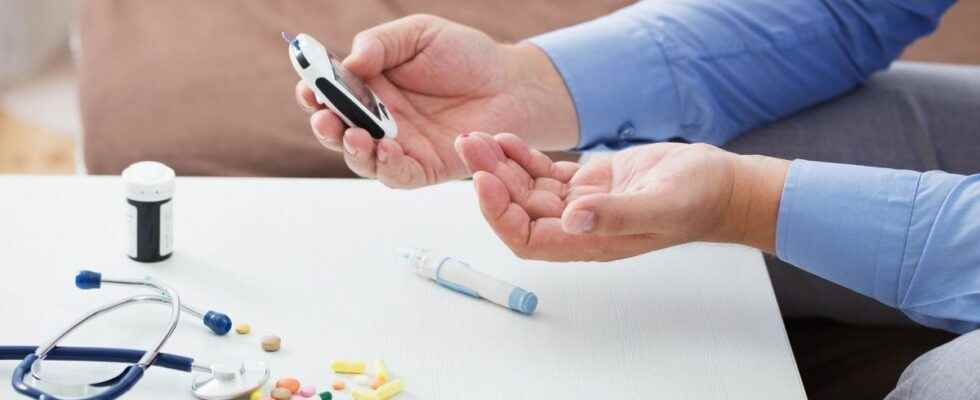Published on
Updated
Reading 2 mins.
People with diabetes who take pioglitazone, a type 2 diabetes drug, are less likely to develop dementia than those without, a new study finds.
We already knew that people with type 2 diabetes were at higher risk of dementia, but we did not know how certain molecules – such as pioglitazone – can reduce this risk.
Only 8.3% of those treated developed dementia
To test this hypothesis, the researchers looked at 91,218 participants newly diagnosed with type 2 diabetes who did not have dementia. All were followed for an average of ten years.
Of 91,218 participants, only 3,467 of them received the drug pioglitazone.
The researchers then found that 8.3% of people taking pioglitazone developed dementia, compared to 10.0% of those untreated.
They then took into account other factors that may affect dementia risk, such as high blood pressure, smoking and physical activity, and found that people treated with pioglitazone were 16% less likely to develop the disease than others.
Protection that increases with treatment time
Interesting fact: the longer the drug was taken, the lower the risk of dementia (-37% after 4 years of treatment, 22% after one to two years of treatment).
Benefits were also greater in people with a history of ischemic heart disease or stroke, with reduced risks of 54% and 43%.
“These results suggest that we could use a personalized approach to prevent dementia in people with diabetes if they have a history of ischemic heart disease or stroke.“so judge the authors.
Further research needs to be done
The research team therefore believes that pioglitazone could be an interesting therapeutic lead.
“These results provide valuable information regarding the use of pioglitazone for dementia prevention,” Kim said. “However, in some previous studies of people with dementia or at risk of cognitive decline who did not have diabetes, pioglitazone showed no protection against dementia, so it is likely that a critical factor affecting efficacy is the presence of diabetes. Further research is needed to confirm these results.“.
